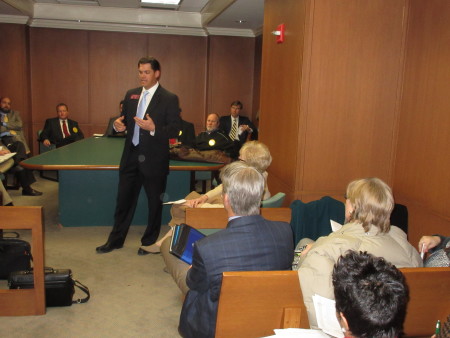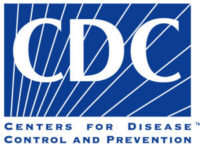The lawmaker who created Georgia’s new tax credit program for rural hospitals wants to boost the incentives for donors.
State Rep. Geoff Duncan, a Cumming Republican, has introduced a House bill that would raise the tax credit from 70 percent to 90 percent for individuals and corporations who donate money to rural hospitals.

Duncan’s original tax credit program was approved last year by the Georgia General Assembly.
He told GHN on Thursday that while the idea has generated strong interest, the current tax credit figure isn’t high enough to attract donations. “The early feedback from corporations is that it’s too big of a stretch’’ for them to donate at the current 70 percent mark.
Duncan said his original bill last year had pegged the limit at 90 percent, but was lowered during the legislative process. The higher credit, he said, will attract more donors, who will also be able to get a federal tax deduction if they donate to a nonprofit hospital.

Rural hospitals have been under increasing financial pressure in Georgia. Five rural hospitals have closed in Georgia since the beginning of 2013, and many more are in financial trouble.
“When you lose a rural hospital, that community loses [the opportunity] for economic development,” said Rep. Darlene Taylor (R-Thomasville) during a health care panel Thursday sponsored by Georgians for a Healthy Future.
Duncan’s bill last session was intended to bolster these financially ailing facilities.
Unlike most states, Georgia has not expanded its Medicaid program under the Affordable Care Act, which industry experts say has hurt rural hospitals financially. Rural hospitals typically treat large numbers of low-income people, and expansion would give many of these people insurance coverage under Medicaid, increasing the hospitals’ chances for reimbursement.
The future of Medicaid expansion is now uncertain nationally, with Republicans in Congress and the incoming Trump administration seeking to repeal the ACA. Gov. Nathan Deal urged state lawmakers this week not to consider any major changes in Georgia’s Medicaid program until the issues are resolved at the federal level.
‘Tremendous’ reception
Georgia’s current tax credit program allows donations of up to $4 million to an approved rural hospital.
Jimmy Lewis of HomeTown Health, an organization of rural hospitals in the state, and a supporter of Duncan’s program, said that under the current tax credit rate, the donations have not come in as hoped.
“The feedback is that it’s a great concept, a great idea, but the [tax credit] numbers are wrong,” Lewis said. The new proposal, he said, “gets the debate going again.”

Duncan’s new House Bill 54 would level off the statewide cap of tax credits to $60 million in 2017 and the same amount for the following two years. The current set-up is $50 million in 2017, $60 million in 2018, and $70 million in 2019. The program is set to expire after three years.
The bill would make the tax credit change retroactive to Jan. 1. It also would require hospitals that hire consulting firms for help in attracting donations to report on these arrangements to the state Department of Community Health.
These consulting arrangements have drawn criticism from key lawmakers, who questioned the need for consultants to help attract donations, and who saw a potential for advisers to collect money intended for rural hospitals.
One consulting firm criticized over its contracting with rural hospitals said recently that it will donate any net income from that work to charitable groups supporting rural health care. (Here’s a recent GHN article on the consulting setup.)
Duncan said Thursday that he hopes the new tax credit bill passes quickly.
“I had never been in a rural hospital before I wrote the bill’’ last year, said Duncan, who represents a district in Atlanta’s mostly affluent northern suburbs.
The reception by rural communities to his tax credit idea, he added, “has been tremendous.”
A separate Senate bill on the tax credit has also been introduced. Sponsored by Sen. Dean Burke (R-Bainbridge), it would raise the potential amount eligible for a tax credit for an individual who is a member of a limited liability company, a shareholder who has been able to buy shares of a Subchapter ‘S’ corporation, or a partner in a partnership.

Separately Thursday, the CDC released a new study that shows Americans living in rural areas are more likely to die from five leading causes than their urban counterparts.
In 2014, many deaths among rural Americans were potentially preventable, including 25,000 from heart disease, 19,000 from cancer, 12,000 from unintentional injuries, 11,000 from chronic lower respiratory disease, and 4,000 from stroke, the study said.
The percentages of deaths that were potentially preventable were higher in rural areas than in urban areas, the report said.

